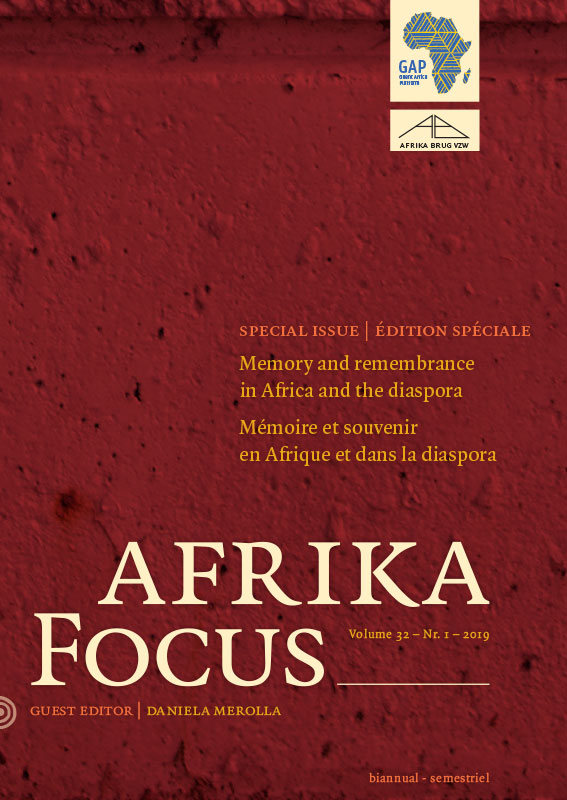Memorializing a Legendary Figure: Bajajidda the Prince of Bagdad in Hausa Land
DOI:
https://doi.org/10.21825/af.v32i1.11787Abstract
This paper examines the various ways in which the Bayajidda legend is memorialized. In its current manifestations, the legend can be seen as an important agency for the remembrance of the past in the context of rapid socio-historical change in Africa, under the influence of modernity, technology and globalization. The analysis begins by highlighting the interface between folklore and history in everyday cultural practices in postcolonial northern Nigeria. The signposts that give a coherent structure to the paper include the chronicles of the Bayajidda legend, the essential oral version circulating in its different forms in Hausa society. Over the years, reference to the legend of Bayajidda has always been made through the use of different modes of cultural expression such as song, dramatic performance, film and other forms of narration. This range has served the political and ideological interests of the dominant power elite who are consistently alluding to the Bayajidda legend. The survival of the essential oral narrative therefore depends solely on a strategy of alluding to the legend in its various guises, including the form of museum artifacts, drama, films and musical songs. However, the paper explores each of the specific historical periods from the pre-colonial down to the colonial and postcolonial epochs with a view to highlighting how specific forms of the legend are deployed by hegemonic structures for the purposes of legitimation. KEYWORDS: BAYAJIDDA, LEGEND, HISTORY, HAUSA KINGDOM, MEMORIALIZATION, RECREATIONDownloads
Published
How to Cite
Issue
Section
License
Authors who publish with this journal agree to the following terms
Authors retain copyright and grant the journal right of first publication with the work simultaneously licensed under a Creative Commons Attribution License that allows others to share the work with an acknowledgement of the work's authorship and initial publication in this journal.
Authors are able to enter into separate, additional contractual arrangements for the non-exclusive distribution of the journal's published version of the work (e.g., post it to an institutional repository or publish it in a book), with an acknowledgement of its initial publication in this journal.
Authors are permitted and encouraged to post their work online (e.g., in institutional repositories or on their website) prior to and during the submission process, as it can lead to productive exchanges, as well as earlier and greater citation of published work (See The Effect of Open Access).


